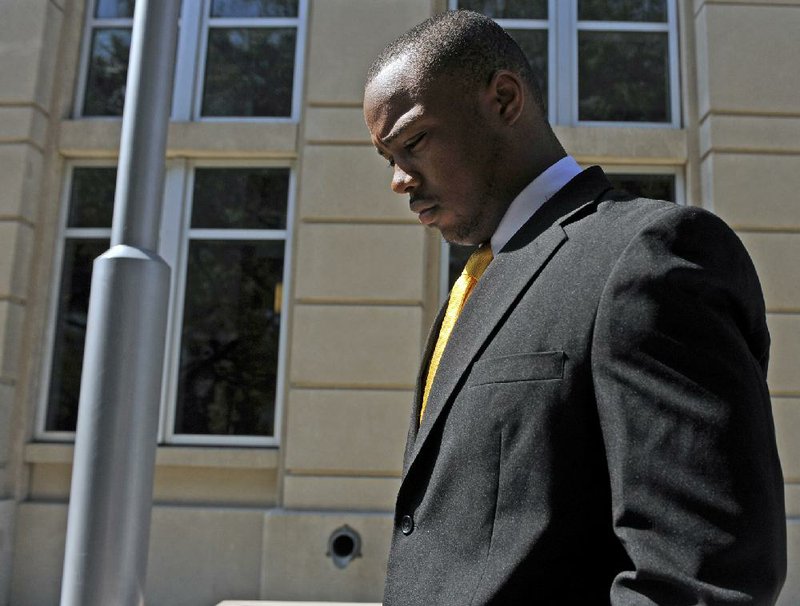HOOVER, Ala. - The legal problems of current and former SEC players - from ex-Florida and NFL tight end Aaron Hernandez to LSU running back Jeremy Hill - cast a negative light on the league that has won seven consecutive national championships.
It also highlights the challenges - and responsibilities - facing coaches who must weigh a player’s talent vs. the potential for trouble in or out of the locker room.
The biggest spotlight by far has been on Hernandez, who’s pleaded not guilty to murder in the killing of Boston semi-pro football player Odin Lloyd.
More pertinent to the upcoming season is Hill’s uncertain status while facing a misdemeanor simple battery charge from an April 27 scuffle in a bar parking lot.
Coaches at SEC media days this week insisted they do their best to keep players behaving, which benefits the team, the players and the men paid millions to win in a powerhouse conference with high stakes and brutal competition.
Florida Coach Will Muschamp said he understands he can’t know what every player is doing every night away from the football building. “You also can’t stick your head in the sand and pretend everything is OK, either,” Muschamp said.
He said coaches and staff need to know who players are hanging out with off the field.
“You’re 100 percent responsible,” Muschamp said. “When you sign a student-athlete to come to the University of Florida, I look athis parents, guardians, whoever is important to him in his life, tell them it’s my job to be an extension of what’s already happened at home. But you’re 100 percent responsible for the young man. Everything that happens.”
As Alabama Coach Nick Saban put it: “We can be the moral compass for our young people, but we cannot always drive the ship. We cannot always be there to drive the ship.”
In the heated arms race of recruiting, coaches also bear the responsibility for signing a player who might have had off-the-field troubles.
Mississippi Coach Hugh Freeze brought in one of the nation’s most surprising and highly rated talent hauls in February. Weighing risk vs. reward is a factor in recruiting decisions, he said, not just whether a kid is deemed a four- or five-star talent.
“I do think you have to be very calculated in the risk you take because you’re under such scrutiny and you’re bringing them into your team,” Freeze said. “We try to minimize the number of at-risk issues you might have, but you’re going to have some. I have a gut feeling. I look at his support system, who he has and listen to him talk about what he wants to be known for. Then I have to make a decision on whether I think we can trust one another with our core values.”
Alabama dismissed four players from school following their arrests stemming from two violent robberies on campus barely a month after the Crimson Tide claimed their second consecutive national title in January.
Saban said every player he has kicked off has been someone the team’s leadership group felt needed to go.
“With events of today and the attention on some of the people who have been arrested in sports in the last couple of weeks, it’s even going to be more critical to players’ future that they make good choices and decisions,” Saban said. “And they have to realize that.”
Saban said Alabama has a 12-course program in behavior for success and has psychiatrists or sports psychologists talk to troubled players.
“I always talk to our players about being a blinking light,” he said. “If you look at a Christmas tree, when all lights shine bright, it’s beautiful. But if one light’s going like this [flickering], your attention is just to that light. Nobody should be a blinking light. The players always bring that up to me: ‘This guy is a strobe light, man.’ ”
Sports, Pages 19 on 07/20/2013

